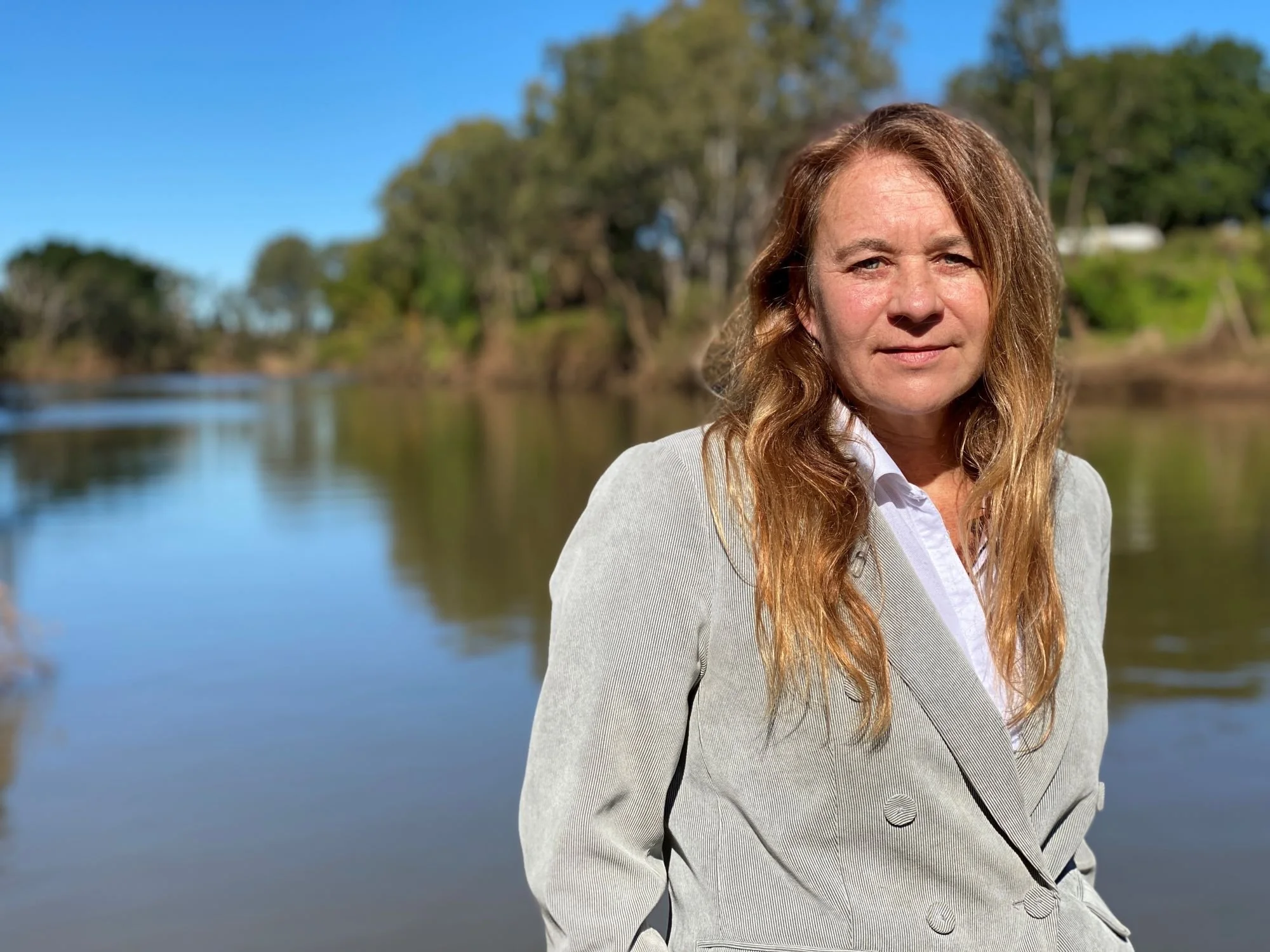Mandy Reichelt-Brushett - talking about the Richmond River: community values for river health in a post-flood environment
Mandy Reichelt-Brushett has 20 years experience in investigating human impacts on the environment - that’s a decent chunk of time! She holds a Bachelor of Applied Science in Coastal Management from the University of New England - Northern Rivers, a Master of Science in Marine Chemistry from James Cook University (North Queensland) and a PhD in Marine Ecotoxicology from Southern Cross University. She’s a senior lecturer at SCU and has published in many scientific journals, presented her research findings at national and international conferences and co-authored a book chapter. She’s also the Inaugural President of Richmond Riverkeeper.
Southern Cross University recently announced the grant receipients for a bunch of community engagement projects related to flood recovery. Mandy’s proposal was one of the seven recipients so we thought we’d ask her a few questions about what she has planned. Read on to hear about her upcomig project, Mandy’s connection to the Richmond River and her favourite species in the region:
Thanks for chatting to us Mandy. First off, what’s your personal connection to the Richmond River?
I grew up on the Tweed River and came to Lismore in 1988. I love the aquatic environment and have spent much of my career looking at the impacts of pollution. Personally, I want to help restore the Richmond River, it has so many challenges in terms of water quality that I have learned to understand over the years. Now it is time for action, but actions need to be informed by community aspirations. I learn something about the river every day, I take students on field trips to many places around the catchment and there are many beautiful places we should celebrate along with working on those challenges.
We both attended the Richmond Riverkeeper forum at Southern Cross University earlier this year and took part in an activity where each person stood in the part of the catchment that represented where their heart was located. Where on the river does your heart lie Mandy?
I have a liking for salt water. Down in the estuary, near the mouth seeing the ebb and flow of the daily tides makes me feel alive.
What led you study rivers and the human relationship with them?
Humans have relied upon rivers for food, water, recreation and transport routes for millennia but we haven’t always cared for our water resources and many systems, like the Richmond River, are degraded. To improve river health we need to redefine our relationship with the river, and consider how the river provides for us and the ecosystems we depend upon. And then look after it. Heathy waterways help create healthy communities.
You’ve recently been announced as a grant recipient as part of Southern Cross University’s community engagement projects to aid ongoing flood recovery in the region. What project did you put forward?
The project I put forward is titled “Talking about the Richmond River -Community Values for River Health in a Post-Flood Environment.”
This project is linked to a national strategy that aims to determine water quality objectives. The NSW Government is currently revising these through community and stakeholder consultation. This project will help get better community representation of what values and uses the community believes are important for healthy ecosystems, for public benefit, welfare, safety and health. But the project goes further than this and will also enable our community to create a series of sub catchment management objectives and actions that can support local initiatives. Many of our local community groups are writing small grant applications to do river and riparian improvement works, to have something that helps everyone centre their initiatives on community-based aspirations will help.
Are the local Bundjalung community involved in the conversation? Why do you think their perspective is important?
We are dedicated to working with the local Bundjalung community to hear and understand the cultural and spiritual values they have for the Richmond River along with other important values they place on the river. We are starting conversations about good ways to do this which might be film, storytelling, painting. We are hoping that because this project is driven by locals in the community that the establishing relationship will be authentic and long term. We have so much to learn from each other.
Where will the workshops take place?
We plan to have workshops all around the catchment from the very upper reaches through to the mid and lower catchment. I am happy to hear from the community about good places to bring people together too. The project supporters including Richmond RiverKeepers, Oz Fish, Casino Food Co-op River Crystal Initiative and Rous Water will also help us.
How can people reading get involved in this project?
Please just contact me by email amanda.reichelt-brushett@scu.edu.au
We will get momentum in the next few weeks but I can start a list right now. This project is about understanding the community values and aspirations for improving the health of Richmond River so we absolutely want the community involved.
To finish off - what’s your favourite Northern Rivers species?
Oh gosh, how do I pick just one?
The Eastern Freshwater Cod Maccullochella ikei is endangered and only ever existed in Clarence and Richmond River. No remnant populations remain in the Richmond River. The recovery plan highlights the actions required to provide suitable habitat, some of these include the allocation of environmental flows, preventing sedimentation and poor water quality by improved land management practices and restoring riparian vegetation. What this fish needs is what is also needed to improve the overall health of the Richmond River. For this reason, it is an iconic species for investing in improving the health of the Richmond River.
But I also get pretty excited when I see a regent bower bird!


